

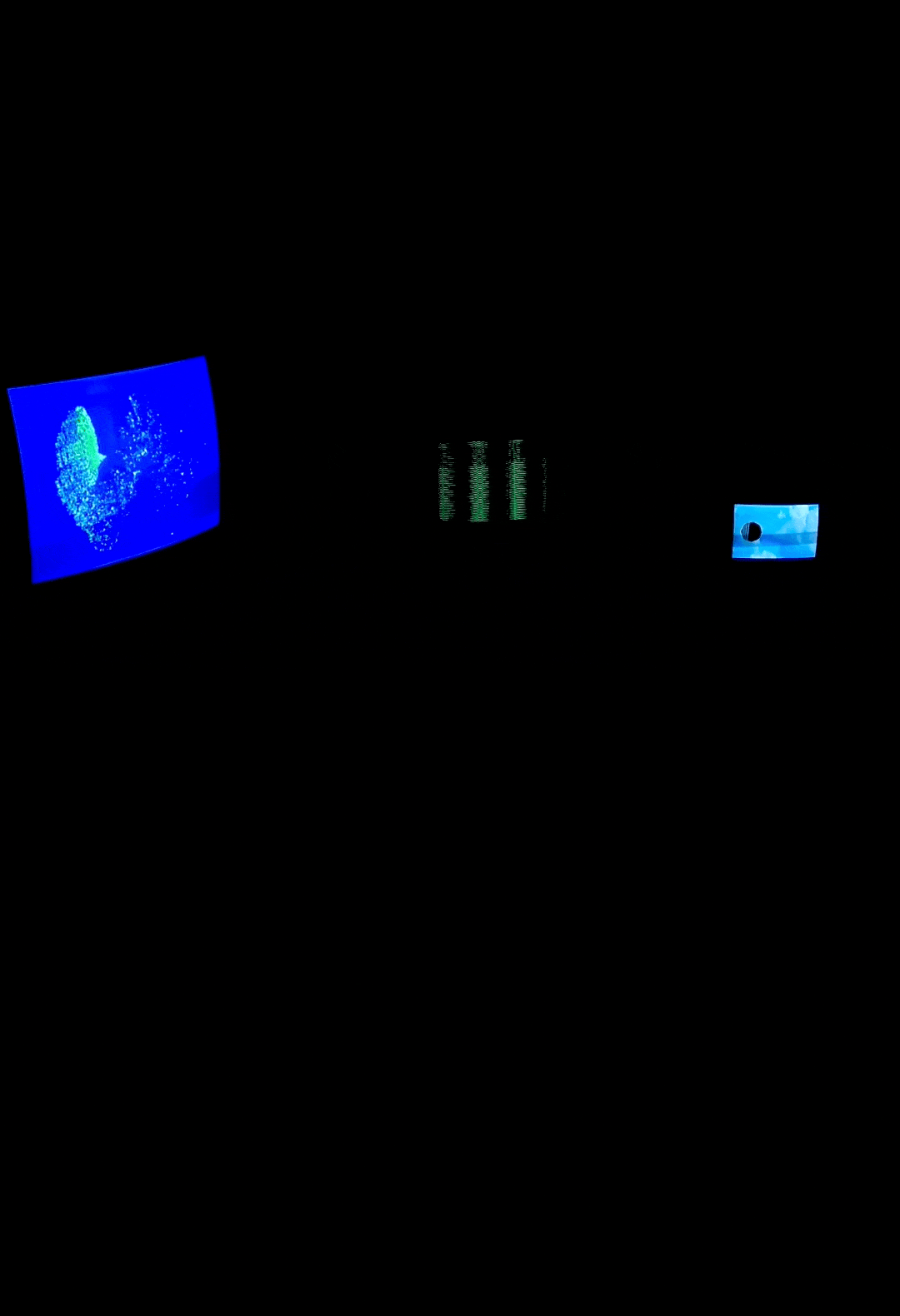
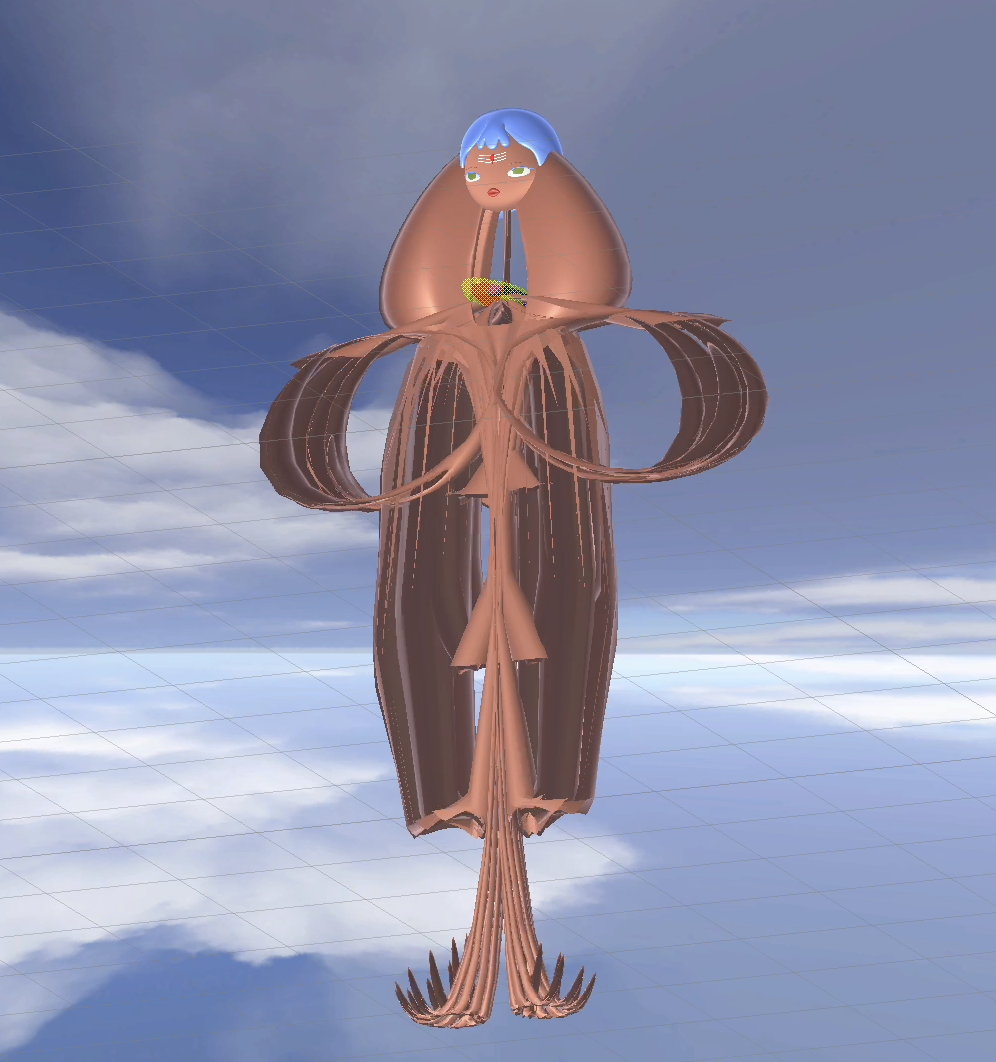
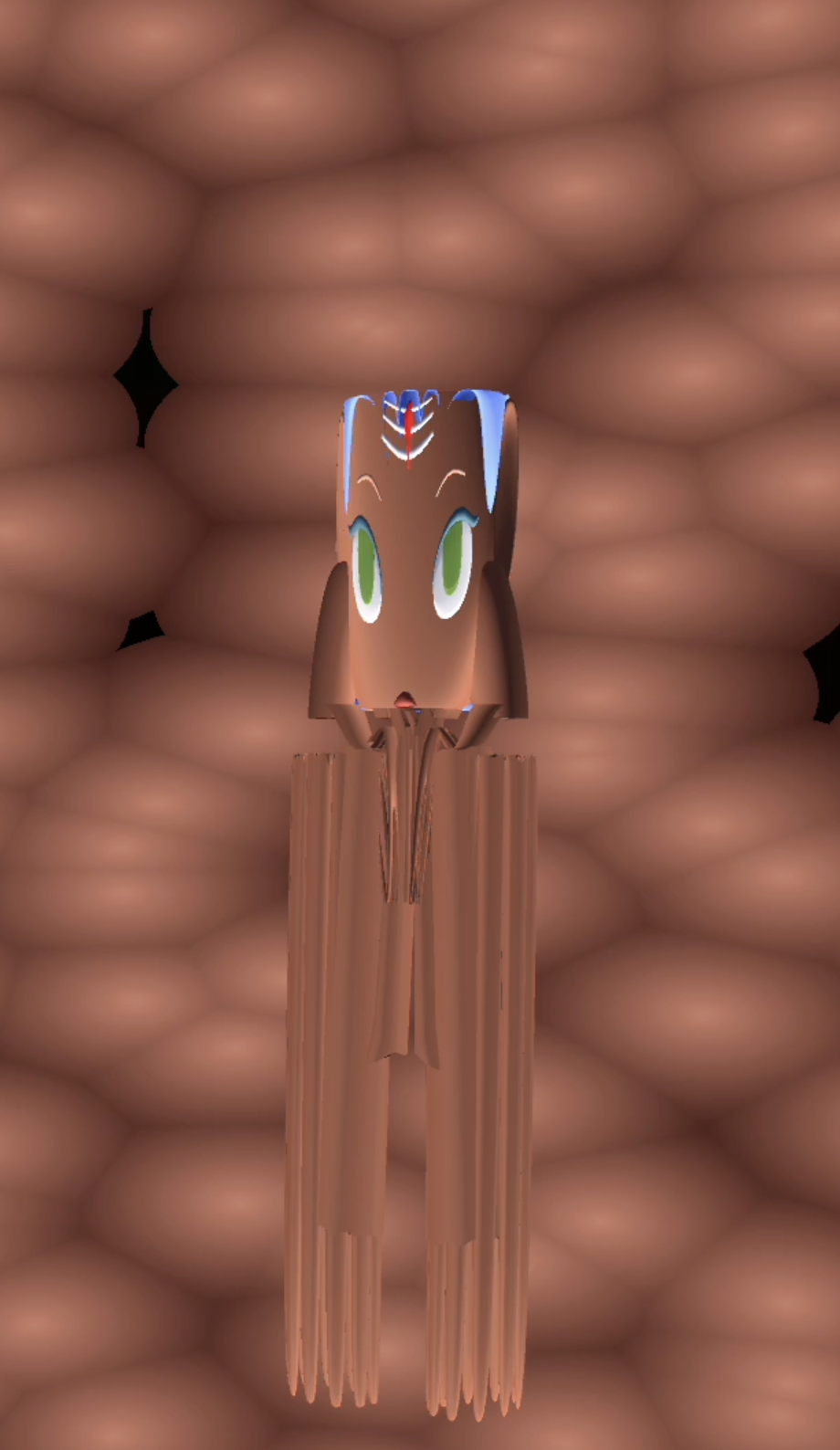


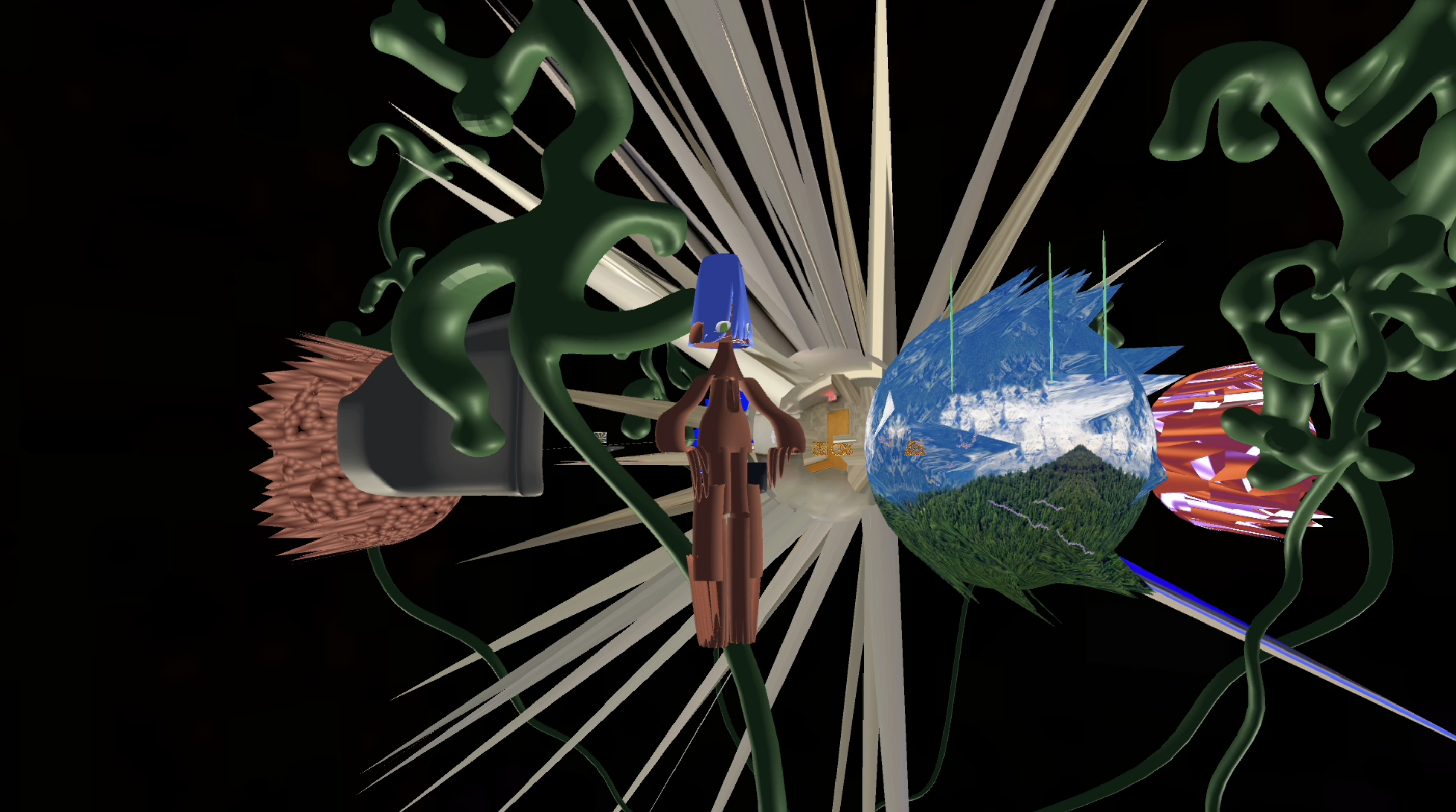

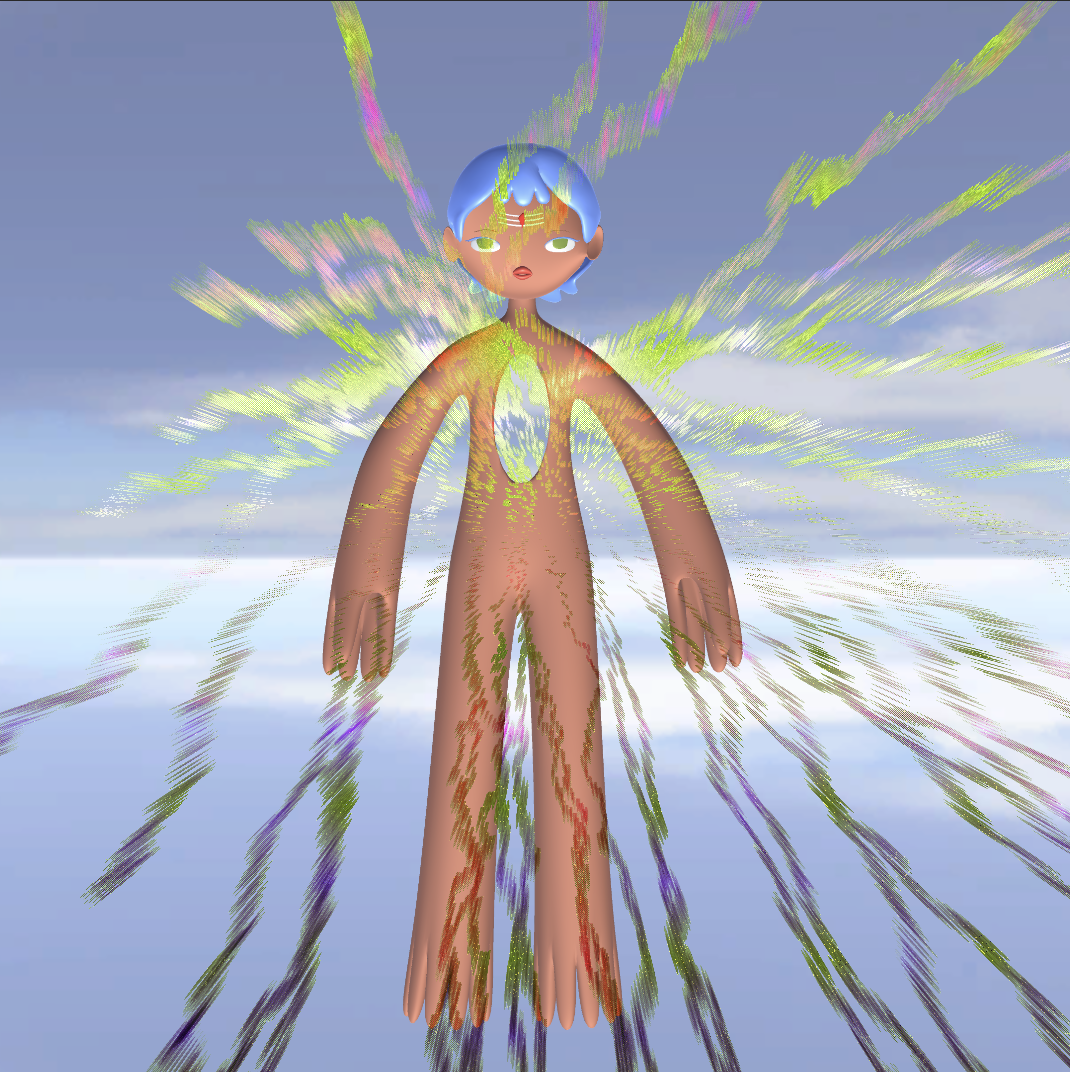
VIRTUAL SHIVA / aabhaasee shiv / आभासी शिव
Virtual Shiva 0 Web Version (Requires PS4 Dualshock): Play Now!
Virtual Shiva 0 Video: Watch Here!
*Virtual Shiva 1 (CRTs) is not available online
Installation Document: Read Here!
Virtual Shiva - Center For Art Tapes, Halifax, February 3-21 2025
Virtual Shiva is an exploration of the cosmic depth of generative spaces
- a collaboration of realities glitching in a dance of creation and
destruction.
Decolonizing gaming’s “avatar” with the name’s
original Hindu significance, Virtual Shiva invites viewers to play as
The Destroyer’s avatar within a complementary pair of video game
installations. Between the immersion of a projected macrocosm and the
observation of a windowed microcosm, viewers are encouraged to play,
experiment, and contemplate as denizens wielding universe shattering
properties.
The Soul of Avatars - Parallels between
Hindu Philosophy and Our Extension from Physical Reality into Avatar
Bodies Hinduism’s epochal legacy and the emergences of the digital
sphere both contemplate themes of identity and consciousness,
endeavouring to understand differing planes of reality and what
experiences and lessons emerge as such. As an Indian artist, Hindu
concepts underpin Kahani’s work through explorations of our energy— how
our intentions and emotions manifest, how our relationships bind us to
one another, and how our existence may be felt on many different planes
of reality. Virtual Shiva asks where and what the ātma (soul) is in our
digital avatars - avatars here used both its original Hindu and adopted
meaning. Playable identities in video games are our manifested denizens
for traversing new dimensions. This parallel between Hindu philosophy
and the essence of extended realities invites deeper reflection on the
validity of video game media - how can these spaces feel more real, and
despite being a man-made dimension, are they not as real as the other
acknowledged planes within Hinduism? The resulting collaboration and
acknowledgment between our physical selves and our avatar bodies
represent a transference of intent, enriching our pursuit of
self-expression and understanding in both realms.
Video Games and
Generative Art Generative art is an art form of complete
unpredictability. It is the method - a set of rules to run its course -
a code. Yet despite being entirely constructed of code, video games are
designed to be anything but unpredictable, often serving as a scripted
product to be completed. However, by allowing a video game to be
unpredictable, to not have a conclusion, nor even a goal, what does this
space become? If a video game is allowed to operate generatively, and
that is to say, operate not an interpretive level but directly with its
own code, is it not as real as we are? Furthermore, video games are a
medium that entirely places viewers within the universe of the artist,
one that rewrites notions of the digital sphere as relationship that
encourages play and experimentation.
Genderless and Cartoon
Imagery ātma in virtual avatārs uses genderless avatars to further
explore Hindu philosophy and digital spaces. In Hinduism, the Atman
(soul) is beyond gender, embodying a universal essence that transcends
physical distinctions. Similarly, genderless avatars in virtual realms
allow individuals to express their true selves without the constraints
of societal norms and expectations tied to gender. Likewise, the use of
cartoon imagery reflects a return to childhood and liberation from
preconceived notions.